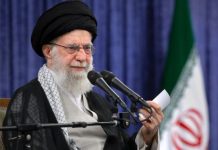Maimoona Rasool
The book Federalism and the Quest for National Integration in Pakistan is another significant contribution by Dr. Muhammad Akram Zaheer, addressing the complex issues of federalism and national integration in Pakistan.The book explores into the theoretical underpinnings of federalism, its historical trajectory and its role in fostering national unity. With a particular focus on constitutional reforms, especially the 18th Amendment, the author, Dr. Zaheer, explores the intricate relationship between federal structures and regional identities. This work serves as an essential resource for scholars, policymakers and students of political science seeking to understand the complexities of federalism in Pakistan.
One of the book’s standout features is its robust theoretical framework. Dr. Zaheer begins by tracing the historical and philosophical roots of federalism, defining it as a system of governance that balances power between a central authority and regional entities. In its ideal form, federalism promotes cooperation and national cohesion while safeguarding regional autonomy. However, in Pakistan, centralization, political instability and ethnic divisions have often weakened federalism. The author provides a balanced discussion of the strengths and weaknesses of federalism, connecting these theoretical aspects to Pakistan’s unique context.Dr. Zaheer argues that federalism in Pakistan has largely remained a theoretical concept rather than a fully operational political system. While constitutional frameworks have enshrined federal principles, their implementation has been inconsistent. This inconsistency has fueled tensions between the central government and the provinces, particularly in regions like Balochistan and Sindh, where demands for greater autonomy have often been met with resistance from the federal authority.
The book offers a detailed historical analysis of federalism in Pakistan, tracing its development from the early years following independence to the present day. Dr. Zaheer examines key constitutional milestones, including the 1956, 1962 and 1973 constitutions and their impact on federalism. He critiques the 1956 and 1962 constitutions for their centralizing tendencies, which he argues contributed to regional alienation and political instability.The discussion of the 1973 Constitution is particularly insightful. While this constitution laid the groundwork for a federal structure, successive governments failed to fully implement its provisions, resulting in a persistent imbalance between the center and the provinces. The book also critically assesses the role of military regimes, particularly those of General Ayub Khan, General Zia-ul-Haq and General Pervez Musharraf, in shaping Pakistan’s federal landscape. Dr. Zaheer contends that the military’s preference for centralized governance has often undermined provincial autonomy and democratic governance.
A significant portion of the book is devoted to case studies of Pakistan’s four provinces Punjab, Sindh, Khyber Pakhtunkhwa andBalochistan. These case studies provide a detailed exploration of regional grievances, historical injustices and the ongoing struggle for greater autonomy.
- Punjab: Dr. Zaheer highlights Punjab’s dominant role in Pakistan’s political and economic landscape, arguing that its disproportionate influence has fueled resentment among smaller provinces. While Punjab serves as the economic and political hub of the country, its perceived preferential treatment in resource allocation and governance decisions has exacerbated tensions with other regions.
- Sindh: The book delves into the ethnic and political complexities of Sindh, particularly the divide between the urban Muhajir population and the rural Sindhi populace. Dr. Zaheer examines the rise of the MuttahidaQaumi Movement (MQM) and its demands for greater representation, as well as broader issues such as economic grievances and water distribution conflicts.
- Khyber Pakhtunkhwa: The analysis of Khyber Pakhtunkhwa focuses on its historical struggle for provincial rights and its role in Pakistan’s broader security dynamics. The book discusses the impact of the war on terror on the region and how federal policies have influenced local governance.
- Balochistan: Perhaps the most compelling section of the book is its discussion of Balochistan, which has long been a flashpoint for conflict between federal authorities and regional nationalist movements. Dr. Zaheer examines the historical roots of Balochistan’s grievances, including economic marginalization, resource exploitation and human rights violations. The book underscores the need for meaningful dialogue and political accommodation to address the province’s concerns and foster national integration.
A central focus of the book is the 18th Amendment to the Constitution of Pakistan, which Dr. Zaheer describes as a landmark in the country’s federal evolution. Enacted in 2010, the amendment aimed to decentralize power and grant greater autonomy to provinces. Dr. Zaheer provides a critical analysis of the amendment’s impact, noting both its successes and limitations. While the amendment represented a significant step toward strengthening federalism, challenges remain in its implementation, particularly regarding fiscal federalism and administrative capacity at the provincial level.
Dr. Zaheer convincingly argues that a functional federal system is essential for national integration in Pakistan. The book highlights how the failure to address provincial grievances has led to political instability, ethnic conflicts and, in some cases, separatist movements. The author calls for a more inclusive and participatory federal model that recognizes Pakistan’s ethnic and regional diversity while maintaining national unity. The book also explores the role of political institutions, the judiciary and political parties in shaping federalism. Dr. Zaheeranalyzes the politicization of federal institutions and the judiciary’s inconsistent role in resolving federal disputes. He emphasizes the need for democratic consolidation and institutional reforms to strengthen federalism and promote national cohesion. In the concluding chapters, Dr. Zaheer offers several recommendations for strengthening federalism in Pakistan. These include:
- Genuine devolution of power to provinces beyond constitutional provisions.
- Strengthening fiscal federalism to ensure equitable resource distribution.
- Enhancing inter-provincial coordination and cooperation.
- Addressing regional grievances through inclusive governance and economic policies.
- Implementing institutional reforms to depoliticize federal institutions and ensure their effective functioning.
The book concludes with a call for a more pragmatic and adaptive approach to federalism, one that balances regional aspirations with national unity. Dr. Zaheer’s analysis is both comprehensive and thought-provoking, making the book an essential read for anyone interested in Pakistan’s federalism and governance challenges.Federalism and the Quest for National Integration in Pakistan is anexactly researched and well-structured work that makes a significant contribution to the study of federalism in Pakistan. Dr. Zaheer’s work is commendable for its depth, clarity and balanced analysis. While the book is highly academic in nature, its accessible language and structured arguments make it suitable for both scholars and general readers interested in Pakistan’s political scene. The whole, the book presents a compelling case for strengthening federalism as a means to achieve national integration. By addressing historical grievances, promoting equitable governance and promotion regional inclusivity, Pakistan can move toward a more stable and cohesive federal system. Dr. Zaheer’s insights and recommendations offer a valuable roadmap for policymakers seeking to sail across the complexities of federalism in Pakistan.
Maimoona Rasool
Assistant professor, National University of Computer & Emerging Sciences, Islamabad












